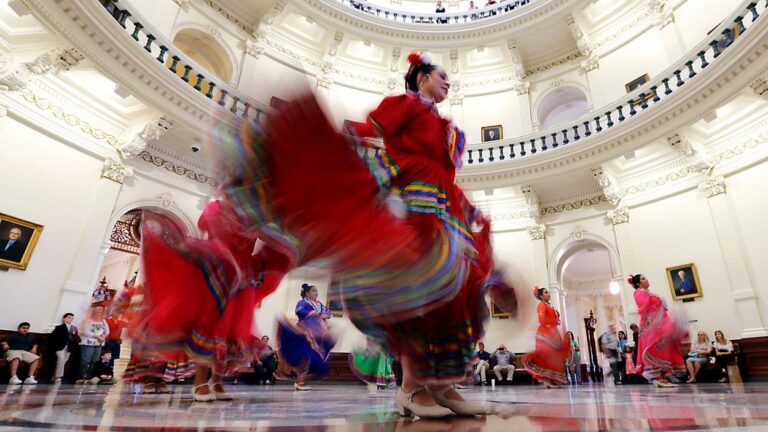Traditional Family Values Honored by Texans
Texas, known as the Lone Star State, holds a unique position in American culture for its bold independence, rich traditions, and deeply ingrained sense of community. Beyond its reputation for sprawling landscapes, cowboy culture, and barbecue, Texas is revered for its steadfast commitment to traditional family values. These values are woven into the fabric of Texan society, creating a foundation of respect, unity, and loyalty that sustains generations.
In this article, we’ll delve into what traditional family values mean to Texans, the ways they honor these values, and their broader impact on individuals, families, and communities. We’ll also explore how Texans are preserving these principles in an ever-changing world.

Source: nurturingparenting
What Are Traditional Family Values?
At their core, traditional family values reflect the ideals that prioritize family as the cornerstone of society. These principles focus on fostering love, integrity, hard work, and respect, forming the moral backbone of many Texas households.
In Texas, these values are not merely philosophical—they are lived experiences. Families across the state embrace traditions that emphasize:
- Respect for Elders: A deeply ingrained custom, respect for parents and grandparents is paramount. Elders are viewed as the guardians of wisdom and tradition, and their guidance is sought in times of decision-making.
- Marriage as a Partnership: Marriage is celebrated as a sacred and enduring union. Texans often regard it as the bedrock of a stable family, with commitment and communication at its core.
- Faith and Spirituality: For many Texans, religion plays a pivotal role in shaping family life. Faith-based values provide moral direction and a sense of purpose.
- Family Unity: Strong family ties are cherished, with quality time and shared experiences taking precedence over distractions of modern life.
- Hard Work and Accountability: Texans emphasize the importance of a strong work ethic and personal responsibility, teaching younger generations to strive for excellence.
The Legacy of Traditional Family Values in Texas
Texas has a long-standing history of valuing family as the foundation of its culture. From the early days of settlers to the modern era, the state’s unique blend of cultures—including Native American, Mexican, Southern, and Western influences—has shaped its approach to family life. These diverse roots have contributed to traditions that continue to thrive, such as multigenerational households, faith-based gatherings, and community events.
For many Texans, family values are inseparable from their identity. This sense of rootedness and continuity has helped communities weather challenges, from economic hardships to societal shifts. The strength of these values lies in their universality—they provide stability in an unpredictable world.
How Texans Honor Traditional Family Values
1. Family Gatherings and Celebrations
Family gatherings are a cherished aspect of life in Texas. Whether it’s a weekly dinner, a holiday celebration, or a special milestone, these events reinforce the importance of family unity.
- Sunday Barbecues: The smell of smoked brisket and sizzling sausages wafting through a backyard is a quintessential Texas experience. Families often come together on Sundays to share food, laughter, and stories.
- Holidays as Bonding Opportunities: Thanksgiving, Christmas, and Easter are celebrated with grandeur in Texas homes. From preparing elaborate meals to engaging in prayer and reflection, these holidays underscore the values of gratitude, love, and generosity.

Source: alamy
2. Faith as a Guiding Force
Religion plays an integral role in the lives of many Texans, providing a moral framework for daily life and family decision-making.
- Weekly Worship: Families often attend church together, making Sundays a time for spiritual growth and connection. Churches in Texas frequently host events like family counseling, youth programs, and charity drives that bring families closer.
- Faith-Based Practices at Home: Many Texan families incorporate prayer and scripture readings into their daily routines, ensuring that faith remains a guiding presence.
3. Education and Moral Development
Texans place a strong emphasis on education as a means of instilling traditional values in younger generations.
- Character Building in Schools: Schools across Texas emphasize respect, responsibility, and patriotism, often incorporating lessons about civic duty and moral integrity into their curricula.
- Homeschooling and Faith-Based Education: Some families choose homeschooling or private religious schools to ensure their children are raised with teachings that align with their family values.
- Parental Involvement: Parents play an active role in their children’s education, attending school events, volunteering, and fostering open communication.
4. Community Engagement
Texans understand that family values are most impactful when extended beyond the home. Community involvement is a natural extension of family life, with families working together to uplift those around them.
- Local Events: From county fairs to town parades, Texans participate in events that celebrate their culture and bring people together.
- Volunteer Work: Many families volunteer as a unit, teaching children the importance of giving back. Activities like food drives, habitat restoration, and mentoring programs are common ways families contribute.
5. Preserving Traditions Through Generations
Texas families take pride in passing down customs, stories, and lessons that keep their heritage alive.
- Storytelling: Elders often share tales of the past, teaching younger generations about resilience, faith, and perseverance.
- Skills and Crafts: From teaching children how to cook traditional dishes to passing down ranching techniques, families ensure that practical knowledge and traditions endure.
Challenges to Maintaining Family Values
While Texans remain committed to honoring traditional family values, modern life presents new challenges. Factors such as technology, urbanization, and shifting societal norms have transformed how families interact and communicate.
1. The Influence of Technology
While technology can bring families closer, it can also create distractions that hinder quality time. Many Texas families are addressing this by setting boundaries, such as designated “tech-free” evenings or encouraging outdoor activities.
2. Busy Schedules
With parents working demanding jobs and children involved in numerous extracurricular activities, finding time for family can be difficult. Texans often prioritize intentional moments, like shared meals or weekend outings, to counteract this challenge.
3. Changing Social Norms
As societal attitudes evolve, some aspects of traditional values are being redefined. Texans are adapting by focusing on the timeless principles of love, respect, and responsibility while remaining open to new ways of living.
Why Traditional Family Values Matter Today
In an era marked by change and uncertainty, traditional family values offer stability and clarity. They provide a roadmap for navigating life’s challenges and building meaningful relationships. For Texans, these values are more than personal—they contribute to a sense of shared identity and purpose.
Here are a few reasons why these values continue to resonate:
- Building Resilient Families: Strong family values create an environment where individuals feel supported and valued.
- Fostering Community Growth: Families that embody traditional values help strengthen their neighborhoods and communities.
- Guiding the Next Generation: By teaching principles like respect, hard work, and compassion, Texans equip their children with tools for success.
Adapting Traditional Values for the Future
Texans are finding innovative ways to keep traditional values alive while embracing modern life. For example:
- Hosting virtual family reunions for distant relatives.
- Blending cultural traditions with contemporary practices, like incorporating social media into family storytelling.
- Creating family rituals that reflect shared interests, such as hiking or volunteering.
By balancing tradition with adaptability, Texans ensure that their values remain relevant and impactful.
Final Thoughts
Traditional family values are a cornerstone of Texas culture, shaping the lives of individuals and communities alike. Through faith, family gatherings, education, and community engagement, Texans honor these values in ways that are both timeless and adaptable.
As the Lone Star State continues to grow and evolve, its commitment to these principles will remain a guiding light. Texans understand that by preserving their heritage and fostering love, respect, and responsibility, they are building a legacy that will inspire generations to come.
In a world that often feels fragmented, Texas serves as a powerful reminder of the enduring strength of family values—and the beauty of honoring them in both big and small ways.





















